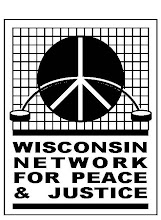SAT., MAY 23, 2009 - 12:56 PM
By FRANCES WIEDENHOEFT
It recently occurred to me -- abruptly -- that it is 2009.
I am home again, and America has been at war in Iraq for six years.
America has been in Afghanistan for eight years to help stabilize the country and oust the terrorists who are becoming more obscure with each passing week.
I have been home from Iraq for a year, but this return has been a gradual one. The distraction of the previous year left me feeling weak and unavailable to those I love.
One of many tools I have been using to help clear my mind of the debris of my involvement in six years of war is a specific type of therapy at the Veterans Administration mental health clinic. The therapy is useful and helping me. But initially, I was quite skeptical.
The underlying principal of the therapy, as I understand it, is to confront and resolve our internal moral conflicts related to the war. It was difficult for me to grasp how this would work, because I believe that the fundamental nature of war is a moral conflict.
Our American wars, cynics aside, have been fought at least in principle to defend or save a group of people, except that to save this group of people we need to kill another group of people.
To those of us down on the ground, the picture becomes muddled, and our hearts and souls are the casualties. It doesn't surprise me that so many soldiers are committing suicide. It is a testament to the strength of our soldiers and their families that more are not doing so.
The fundamental moral conflict of war to each individual involved is that killing is meant to be disturbing, horrifying to the human soul. Killing the enemy can be intellectually justified, but war is not discreet, and we witness daily, hourly, the civilian deaths, women, children, elders.
Everyone intimately involved in the process, killing, saving lives, is wounded in ways that do not heal. This is the essence of the human cost of war on our soldiers. These moral conflicts are irresolvable, and not easy to make peace with.
So what do we, as a nation, do?
We should take the instrument of war from our national tool bag only as an absolute last resort, after all other measures have been exhausted, and with brutal appraisal of the human cost, including our own soldiers' psyches.
Fortunately, I have the enduring support of family and community, and the benefit of friendship with older veterans of previous conflicts who have generously shared their experience and shown by example that we can learn to live with our ghosts and demons, and have a full life.
We return and try to pass on this tiny bit of hard-earned truth, that once we resort to war we have unleashed a tidal wave of consequences, most unintended, with damage that can't be undone.
We, the veterans, can be a voice, supported by experience, adamantly maintaining the use of war only as a last resort, and not as the primary means to carry out national policy.
(In memory of Sid Podell)
Frances Wiedenhoeft is a Lieutenant Colonel in the Army Reserve. She served in Desert Storm 1991, Afghanistan 2003, and Iraq 2007-2008. When not on active duty she works as a nurse anesthetist at the University of Wisconsin Hospital, enjoys time with her daughter and grandsons, and is active in Chapter 25 Veterans for Peace, and veterans groups to support peace, justice, and the welfare of our returning service members.










No comments:
Post a Comment